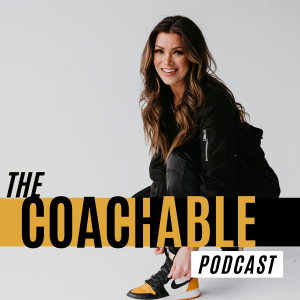
Dr. Avigail Lev and I take on the topic of Cognitive Behavioral Therapy (CBT) this week. We discuss what it is and how it can help us on our path to a healthy and fulfilling life. We also dive into how our values and schema can be influencing our everyday choices. Those painful moments you face are about to become your map to creating a sustainable life. Make sure to have a notebook and pencil ready, because this is some information you’re going to want.
Cognitive Behavioral Therapy Q+A [2:00]
- “I think we can all connect with the experience of knowing that something’s not working for us but continuing to do the behavior and not being able to get out of that habit.”
- “The modern cognitive behavioral therapy doesn't aim to change our thoughts and feelings, but change our relationship with thoughts and feelings so they have less of an influence on our actions.”
- “Awareness isn’t enough, it’s the first step. Then acceptance. Then action.”
What is Schema? [6:55]
- “Schema are core beliefs that we have about ourselves and others in relationships, like abandonment, entitlement, social alienation, failure.”
- “When we develop beliefs about ourselves, it brings up automatic thoughts, feelings, sensations, and then behaviors that we’ve learned to get out of pain.”
- “The comfort of being right feels more safe than stepping into the thing we want most, which might require vulnerability.”
Your Core Beliefs [11:40]
- “Knowing what those core beliefs are requires us to take responsibility for them so we can transform and evolve.”
Reactivity In Our Lives[15:10]
- “We have to accept all that is out of our control. We accept our thoughts, feelings sensations, memories, and all of our internal experiences.. We learn how to build a relationship of self acceptance and mindfulness, and label the emotions.”
- “Our minds are like commercials or sales representatives. As soon as we get triggered, they start convincing us to do old behaviors.”
- “Your values are like a compass to help guide you where you want to go.”
Survival Strategies [25:19]
- “If you have a self-sacrifice schema, you avoid feelings of guilt or being selfish-people pleasing helps to avoid that pain. If you have a subjugation schema, it’s fear driven. You’re afraid of abandonment or being punished for putting your needs first.”
- “These strategies are survival strategies- ways we’ve learned to adapt to meet our needs. As we work on ourselves we realize that they aren’t the most effective strategies.”
Our Pain Points Are Our Map [30:00]
- “As long as we’re on autopilot, subconsciously driven by reaction and responses, we don’t feel like we have a choice-it just feels like “this is who I am”.”
- “Our triggers are our roadmap to healing.”
- “What have your triggers stopped you from doing?”
- “The path out of suffering always requires going through the thing we’d rather avoid.”
Recognize Your Progress [43:0
Connect with us on Instagram: https://www.instagram.com/thecoachablepodcast/
Connect with Tori on Instagram: https://www.instagram.com/coachtorigordon/
Guess what?! WE'RE ON YOUTUBE! https://www.youtube.com/c/ToriGordon
If you love the show and want to show your support, please leave us a 5 star rating and review of the podcast on Apple Podcasts and Spotify! Go be coach
Learn more about your ad choices. Visit podcastchoices.com/adchoices
More Episodes
 2021-06-02
2021-06-02
 2020-10-08
2020-10-08
 2020-09-03
2020-09-03
 2020-08-06
2020-08-06
 2020-07-24
2020-07-24
 2020-07-16
2020-07-16
 2020-06-25
2020-06-25
 2020-06-18
2020-06-18
 2020-06-11
2020-06-11
 2020-05-07
2020-05-07
Create your
podcast in
minutes
- Full-featured podcast site
- Unlimited storage and bandwidth
- Comprehensive podcast stats
- Distribute to Apple Podcasts, Spotify, and more
- Make money with your podcast
It is Free
- Privacy Policy
- Cookie Policy
- Terms of Use
- Consent Preferences
- Copyright © 2015-2024 Podbean.com






